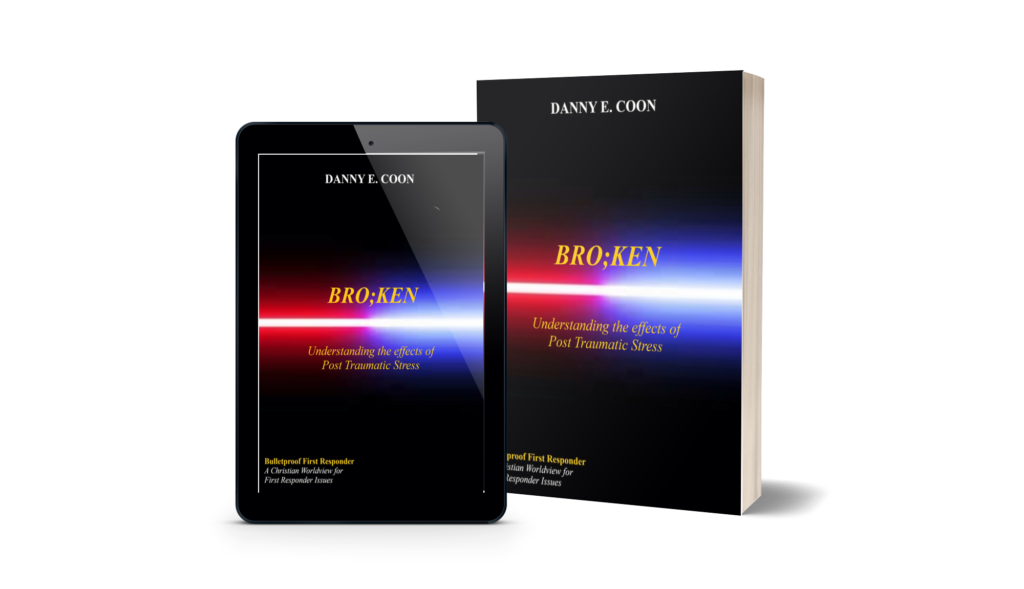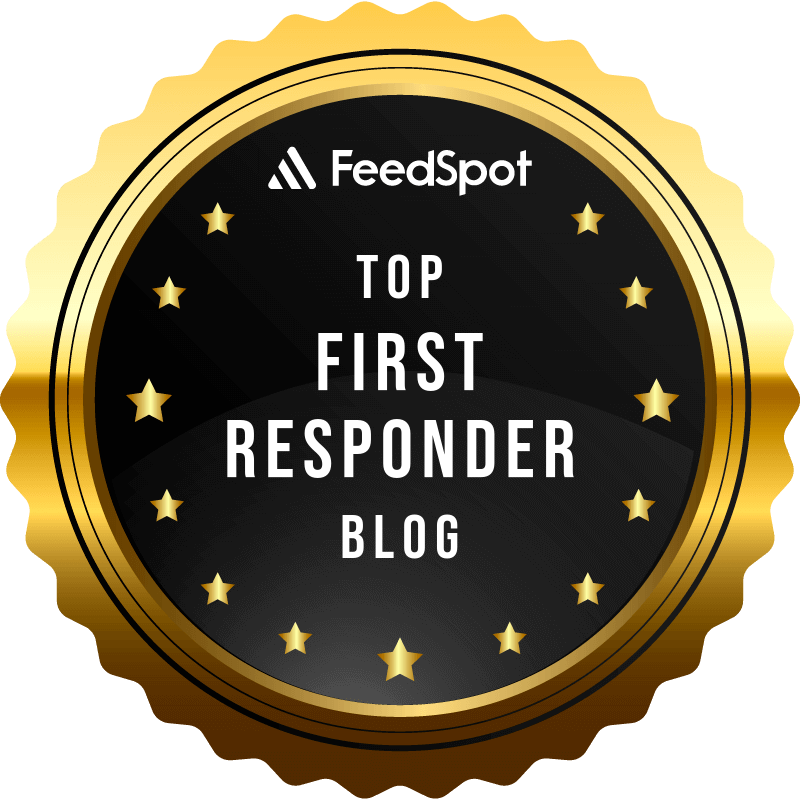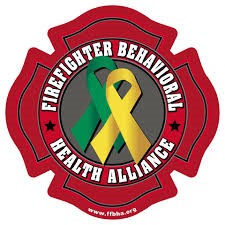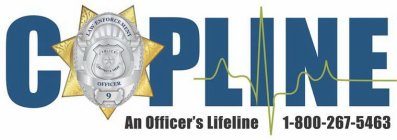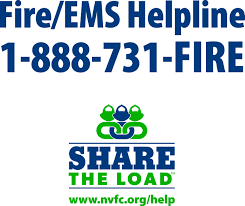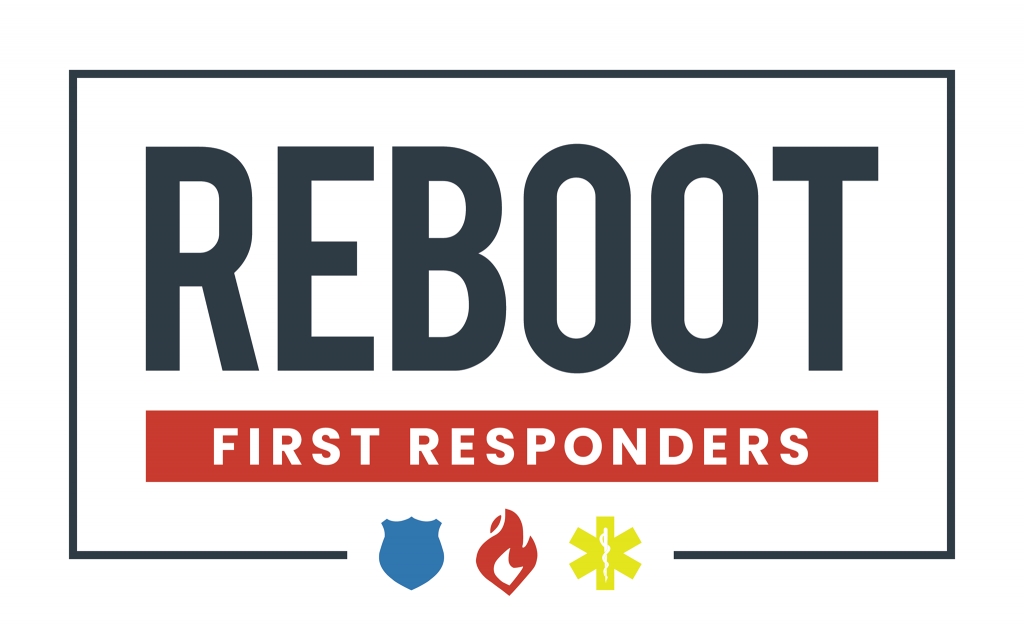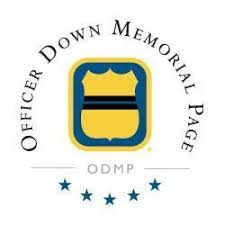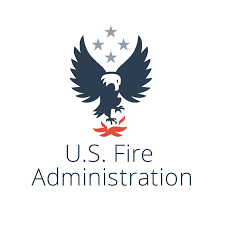The Hypervigilance Cycle
“Highway to the Danger Zone”

Photo by Olivier Guillard on Unsplash
Increased awareness aids firefighters, police officers, paramedics and EMTs, and other emergency responders in their work. A first responder in a high-intensity situation must be aware of several details and aspects, make quick and correct decisions, and act without hesitation.
While allowing our occupations to take over our identities may be satisfying and even exhilarating at first, it can have long-term detrimental implications. Chronic anger, sorrow, social isolation, shiftwork, poor nutrition, and a lack of enjoyment and exercise are all harmful. It is well known that first responder suicides outnumber line of duty deaths, not including those caused by the Covid-19 virus.
11 Put on the full armor of God, so that you can take your stand against the devil’s schemes.
12 For our struggle is not against flesh and blood, but against the rulers, against the authorities, against the powers of this dark world and against the spiritual forces of evil in the heavenly realms. Ephesians 6:11-12 NIV
Being one of the main symptoms of Post-Traumatic Stress injury, hypervigilance is more than just being extra alert. Hypervigilance is the body’s way of protecting you from threatening situations. It is a chronic state of stress that heightens your senses. “Hypervigilance is the necessary manner of viewing the world from a threat-based perspective, having the mindset to see the events unfolding as potentially hazardous.”[1]
Widespread among first responders, the hypervigilance cycle is characterized by a sharp transition between two states: “on-duty and off-duty.” The nature of their jobs in emergency services necessitates heightened awareness. This state of extreme attention leads to the hypervigilance cycle.
Merriam-Webster’s dictionary defines hypervigilance as:
extreme or excessive vigilance: the state of being highly or abnormally alert to potential danger
It is the biological process a first responder undergoes while on duty, heightening their awareness, thinking abilities, and a higher state of anxiety. There is usually an increase in pulse rate and blood pressure, as muscles slightly become tense. In hypervigilance, your body starts releasing above-normal amounts of epinephrine (adrenaline) and cortisol into the bloodstream. These physical changes occur without knowledge to our responder, giving them the ability to respond quickly to any situation that may arise. A first responder will work their entire shift under these physical conditions.
“It is exhausting to view the entire world as a potential threat. It takes a great deal of energy to remain vigilant and ‘on guard.’”
Hypervigilance and its Effects on First Responders – By Rachel Koontz
It is no wonder that when the shift ends, our responder is exhausted, even if it was a slow day. This biological process does not stop at the end of the shift. Over a few hours, the body will return to normal, and then like everything else, there is the reaction. They become tired, detached, secluded, and aloof.
Hypervigilance begins hours before our responders’ shift begins. It starts slowly, anticipating the workday. After all, being a first responder is a unique occupation; these heroes spend most of their working days preparing for the worst. It gradually increases on the commute to work, and it is in full effect as the tour of duty starts. During the next 8 to 24 hours, our responder will be experiencing the full impact of hypervigilance. While experiencing hypervigilance, they feel alert, energetic, funny, ALIVE. However, hypervigilance is accompanied by a state of higher anxiety, causing exhaustion.
Applying the third law of motion by Sir Isaac Newton, “for every action, there is an equal and opposite reaction,” those in full-blown hypervigilance will “crash and burn” hours after the shift ends. At the end of the shift, they cannot just “turn off” the hypervigilance switch. It will take a few hours for the body to recover. Just by spending several hours in the hypervigilance state, even though it may have been a slow shift, the body is exhausted. Instead of returning to normal, the body goes into an extreme rest mode, leaving them feeling tired, detached, emotionless, ANGRY. Over time those feelings turn them into an off-duty “couch potato.”
This increased attentiveness leads to the hypervigilance cycle or rollercoaster. It can result in a reaction that is the polar opposite attitude when off-duty. A first responder can go from being hyper-alert, quick-thinking, and feeling incredibly alive and hilarious to passive, indifferent, distant, and angry. Keeping a healthy balance between shifts is difficult for many of these heroes.
Hypervigilance can accompany many different mental illnesses. Anxiety is linked to hypervigilance. A heightened level of awareness or arousal might occur when you are extremely on edge, frightened, or worried about a situation or event.
Our brains are wired to be aware of potential threats in our environment. It’s how our ancestors managed to survive. They were able to keep secure by detecting the presence of predators or other risks. However, our brains shouldn’t be in this hyper-sensitive condition all of the time.
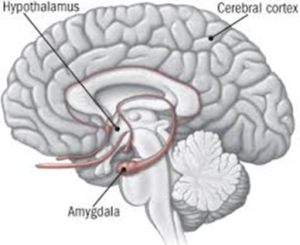 Located deep in the middle of the brain’s temporal lobe is a small almond-shaped set of neurons called the amygdala. The amygdala plays a role in the processing of emotions, survival instincts, and memory. It is part of the limbic system. Conditions such as anxiety, autism, depression, post-traumatic stress disorder, and phobias are suspected of being linked to the amygdala’s abnormal functioning, owing to damage, developmental problems, or neurotransmitter imbalance .[2]
Located deep in the middle of the brain’s temporal lobe is a small almond-shaped set of neurons called the amygdala. The amygdala plays a role in the processing of emotions, survival instincts, and memory. It is part of the limbic system. Conditions such as anxiety, autism, depression, post-traumatic stress disorder, and phobias are suspected of being linked to the amygdala’s abnormal functioning, owing to damage, developmental problems, or neurotransmitter imbalance .[2]
When a threat is detected, the amygdala releases adrenaline, norepinephrine, and glucose to “Rev-Up” the brain and body. Being in a constant state of hypervigilance causes the amygdala to become overactive. It releases more adrenaline into the system, giving an “Adrenaline Rush.” This Adrenaline Rush” is addictive.
Do not be anxious about anything, but in every situation, by prayer and petition, with thanksgiving, present your requests to God
Philippians 4:6 NIV
Because the “adrenaline rush” is addictive and not wanting the off-duty “crash & burn,” first responders may turn to questionable activities to maintain the “rush.” This may include alcohol/substance abuse, high-risk physical activities, extra-marital affairs, and suicidal ideation. Any sort of “bad behavior” is not conducive to a successful career.
 Kevin Gilmartin, Ph.D., is a highly respected leader and authority on Peace Officer hypervigilance. He spent 20 as a Pima County (Tucson, Arizona) Deputy Sheriff and earned his Ph.D. in clinical psychology. Dr. Gilmartin is the author of the book “Emotional Survival for Law Enforcement” (A Guide for Officers and Their Families). Dr. Gilmartin describes this hypervigilance caused “Adrenaline Rush” to “Crash & Burn” as the Hypervigilance Biological Rollercoaster.
Kevin Gilmartin, Ph.D., is a highly respected leader and authority on Peace Officer hypervigilance. He spent 20 as a Pima County (Tucson, Arizona) Deputy Sheriff and earned his Ph.D. in clinical psychology. Dr. Gilmartin is the author of the book “Emotional Survival for Law Enforcement” (A Guide for Officers and Their Families). Dr. Gilmartin describes this hypervigilance caused “Adrenaline Rush” to “Crash & Burn” as the Hypervigilance Biological Rollercoaster.
This two-phase effect of hypervigilance repeats itself self-daily during the workweek. Over time and left unchecked, this rollercoaster ride will cause emotional and physical issues.
In the long term, hypervigilance can lead to ignoring traditional supports systems. Families, nuclear and extended, religion, and the sense of neighborhood all become less significant. The social circle of the inflicted narrows as with their comfort zone. They will only associate with their closest peers.
While hypervigilance will not affect every first responder, it is essential to recognize those suffering from the effects. Physical symptoms may include:
- dilated pupils
- breathing very quickly
- restlessness
- sweating
- rapid heartbeat
- appearing to be “Amped Up” or hyperactive
Hypervigilance sufferers may also display odd behaviors, such as:
- over-reacting
- over-estimate the possibility of bad things happening to them
- over analyzing situations believing they are worse than they are
- alcohol abuse
- have trouble sleeping or staying asleep
There are several treatments and techniques to offset the effects of hypervigilance. To begin with, proper treatment must involve being on a solid foundation with Jesus Christ. Treatment without the scripture, without the word of God, will not be fulfilled.
Psychotropic drugs and psychiatric counseling may help, but a strong relationship with God, our creator, is the only way to heal from this injury successfully.
Many people suffering from hypervigilance have found comfort in the pages of the Bible, which has helped them cope with nightmares, intrusive thoughts, and other worries.
In the Book of Psalms, the Psalmist tells us, 4 He will cover you with his feathers,
And under his wings, you will find refuge; his faithfulness will be your shield and rampart. 5 You will not fear the terror of night, nor the arrow that flies by day, 6 nor the pestilence that stalks in the darkness, nor the plague that destroys at midday, Psalm 91 4-6 NIV.
In his letter to the Philippians, the Apostle Paul wrote: Do not be anxious about anything, but in every situation, by prayer and petition, with thanksgiving, present your requests to God. Philippians 4:6 NIV.
Suffering from hypervigilance does not mean you are broken or psychotic; it means your Soul has been injured. Since God created you, He will heal you if you ask. There may be scars after healing; wear those as a badge of honor, as God healed you.
As First Responders, we took an oath to protect good and fight evil. Many have lost track of their priorities and have put the job first in their lives. If you are experiencing lower than usual sense of self-worth, depression or misplaced guilt, inability to specifically remember or talk about the trauma, feeling numb emotionally, dissociation (not aware of the present moment), a feeling of disconnection from their everyday lives, feeling hyper-aroused and vigilant for danger all the time, lashing out in irritability or unexplained anger, feeling jittery, or unable to concentrate on tasks at hand or other anxiety disorders, such as panic or intense distress, talk to someone and get help. Get back to the basics Put God First, Family Second, and the job further down in the order.
“Don’t let your circumstances become your destination”
Jeremy Stalnecker (March or Die)
IF YOU HAVE THOUGHTS OF SUICIDE, GET HELP NOW
Law Enforcement Copline (800) 267-5463
Firefighters / Medics Fire/EMS HELPLINE (800) 731-FIRE (3473)
-
“Hypervigilance-Emotional Survival for Law Enforcement part 5 of 9,” The Armored Wife, April 3, 2016, Hypervigilance-Emotional Survival for Law Enforcement part 5 of 9 – The Armored Wife | Ephesians 6 (wordpress.com) ↑
-
“Amygdala,” ScienceDaily, accessed August 4, 2019, Amygdala (sciencedaily.com) ↑

